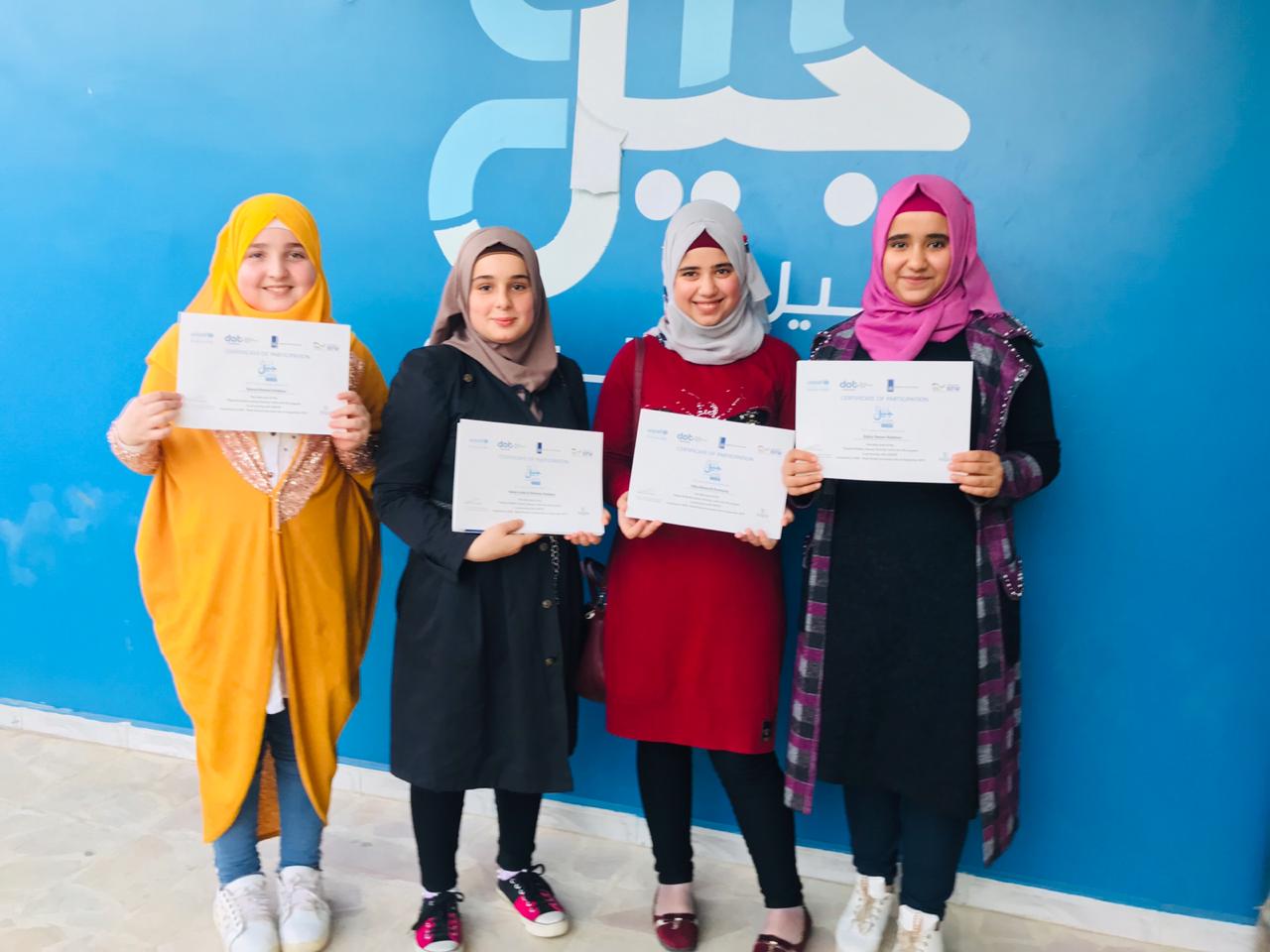Small environmental solutions with a powerful impact.
Protecting the environment has become a global challenge in the past few years. While the planet Earth is encountering environmental damages and alterations, Asma’a, Batoul, Hiba, and Zakia from Lebanon decided to launch an initiative to reduce waste and contribute to the protection of nature in their own community.
According to the World Health Organization, 9 people out of 10 breath polluted air. More than 500,000 deaths were noted in the Eastern Mediterranean Region due to diseases caused by pollution. Countries are taking action through serious initiatives to decrease CO2 emissions.
When it comes to the Lebanese case, waste management is still a nationwide issue with no sustainable plans. Environmental communities, NGOs, and private initiatives are trying to come up with solutions to take part of the world’s challenge.
As for DOT Lebanon, and as part of their partnership with Unicef for the Generation of Innovation Leaders (GIL) program, digital training sessions are delivered across Lebanon to help marginalized youth develop new skills and become social entrepreneurs by implementing innovative solutions to transform their communities.
Earlier this month, a Digital & Media Literacy workshop was delivered in Akkar in the North area of Lebanon where we met 4 young girls Asma’a, Batoul, Hiba, and Zakia who were aiming to make their village cleaner by creating their own waste management solution. The 4 girls created clothes from waste. Recycling, reusing and reducing waste were their main objectives. Thanks to the knowledge they’ve got during the digital training with DOT Lebanon’s trainers they were able to promote their idea and products through social media platforms and a dedicated website. Furthermore, this project shows, in addition to the acquired skills, the artistic spirit of the girls. Their idea has attracted the attention of their colleagues who encouraged them to develop this initiative and make a positive impact.

This story is part of the Generation of Innovation Leaders (GIL) Program by UNICEF implemented by DOT Lebanon with the funding of the German and Deutsch embassies in Lebanon.
Tags
Are you our next Community Leader, Digital Champion, or Social Innovator? Learn more about how to join #DOTYouth
Join #DOTYouthShare this POST
More ARTICLES
Read more like this.